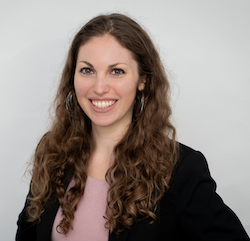There is a huge opportunity — and a huge challenge — ahead of the group of no-tillers carrying on the late David Brandt’s vision for a farmer-to-farmer learning center in southwestern Wisconsin. The committee held 2 days of listening sessions Sept. 13-14 about the vision and role of a farmer-led learning center in Sinsinawa, Wis.
The Dominican Sisters of Sinsinawa (pronounced sin-sin-NAH-wah) had been working with Brandt to turn some of the buildings on the Sinsinawa Mound site into a farmer-led learning center and to have him oversee management (but not day-to-day operations) of the property’s farmland. In the wake of Brandt's unexpected death in May, several no-tillers took up the torch and formed a steering committee to carry on Brandt’s vision.
Listening Sessions
The site was home to hundreds of Catholic sisters at its peak, but with fewer sisters currently living at the site, they are looking for new uses for some of the buildings. The existing buildings sit atop a mound in the driftless region, a geologically unique area untouched by the glaciers with hilly terrain and varying soil types. The site’s geography and location had Brandt — and now the members of the steering committee — excited about the potential for hands-on, farmer-to-farmer learning.
“What we create here could be the future of agriculture,” Loran Steinlage, a No-Till Innovator and No-Till Farmer’s 2023 Conservation Ag Operator Fellow, told the crowd on Thursday.
The West Union, Iowa, no-tiller and close friend of Brandt’s is leading the national group that’s part of the steering committee. The sisters and farmers from Iowa, Illinois, Wisconsin and Minnesota are also represented on the committee. Steinlage and Jay Brandt, Dave’s son, emphasized multiple times throughout the event that Dave wanted the center to be locally led with a strong, farmer-first vision.
“All of these kinds of ideas of action in the community and his experience with the sisters were really foundational in his vision, and he was really excited after his investigative ventures from that,” Jay said.
Regenerative Focus
Jimmy Emmons, a no-tiller from Leedey, Okla., and Rick Clark, a No-Till Innovator from Williamsport, Ind., preached the message of regenerative farming and its benefits throughout both days of the event.
“Our country has sacrificed a lot chasing the dollar, chasing the yield,” Emmons said. “And that comes with a cost — the soil.”
The mound center hosted the first Wisconsin showing of “Common Ground,” the sequel to the popular "Kiss the Ground" documentary. Clark is one of the subjects of “Common Ground,” and the documentary showcases the regenerative and organic practices on Clark’s farm, his testimony to the U.S. House Agriculture Committee and why he chose to eliminate herbicides on his 7,000-acre farm. He and his wife, Carol, believe her cancer and other occurrences of cancer in their family are directly related to past chemical use on the farm.
Emmons also emphasized the need for nutrient-dense food grown with regenerative practices, saying “healthy land creates healthy foods that create healthy bodies.” He said the key to regenerative ag is putting something in the ground, nursing it and seeing it through — just as the steering committee aims to do with Brandt’s vision for the center.
“The only thing that’s impossible on my farm and ranch is something I won’t do,” Emmons said, adding the same was true for the center.
Despite the focus on regenerative practices, Steinlage said he wanted to “leave labels at the door” to ensure the center is welcoming to everyone from no-tillers like Clark to farmers doing conventional tillage.
“We want to be inclusive, not exclusive,” Steinlage said.
Next Steps
The event drew a crowd of supporters from across the U.S. for both the focus group on Wednesday and the presentations Thursday. Most of the people who spoke at the event were fully onboard with the principles of regenerative agriculture and had a long list of ideas for what the center could become.
Many discussions turned from farmer-to-farmer to farmer-to-consumer, as the group thought the public needs more education about how their food is grown and the importance of nutrient-dense food. The challenge for the steering committee is now sorting through and considering the dozens of ideas contributed over those 2 days — while still staying committed to Brandt’s original vision.
“Dave was adamant that this be locally led,” Steinlage said. “We want a strong, farmer-first vision.”
Any no-tillers who want to get involved with the center should contact Loran Steinlage at flolofarms@gmail.com.
Related Content
Ask the Operator: Carrying on Dave Brandt’s Legacy of Farmer-to-Farmer Education [Webinar]
No-Tillers Invited to Event Advancing Late Dave Brandt's Farmer-Led Learning Center
No-Till Legend Dave Brandt Passes Away Unexpectedly






